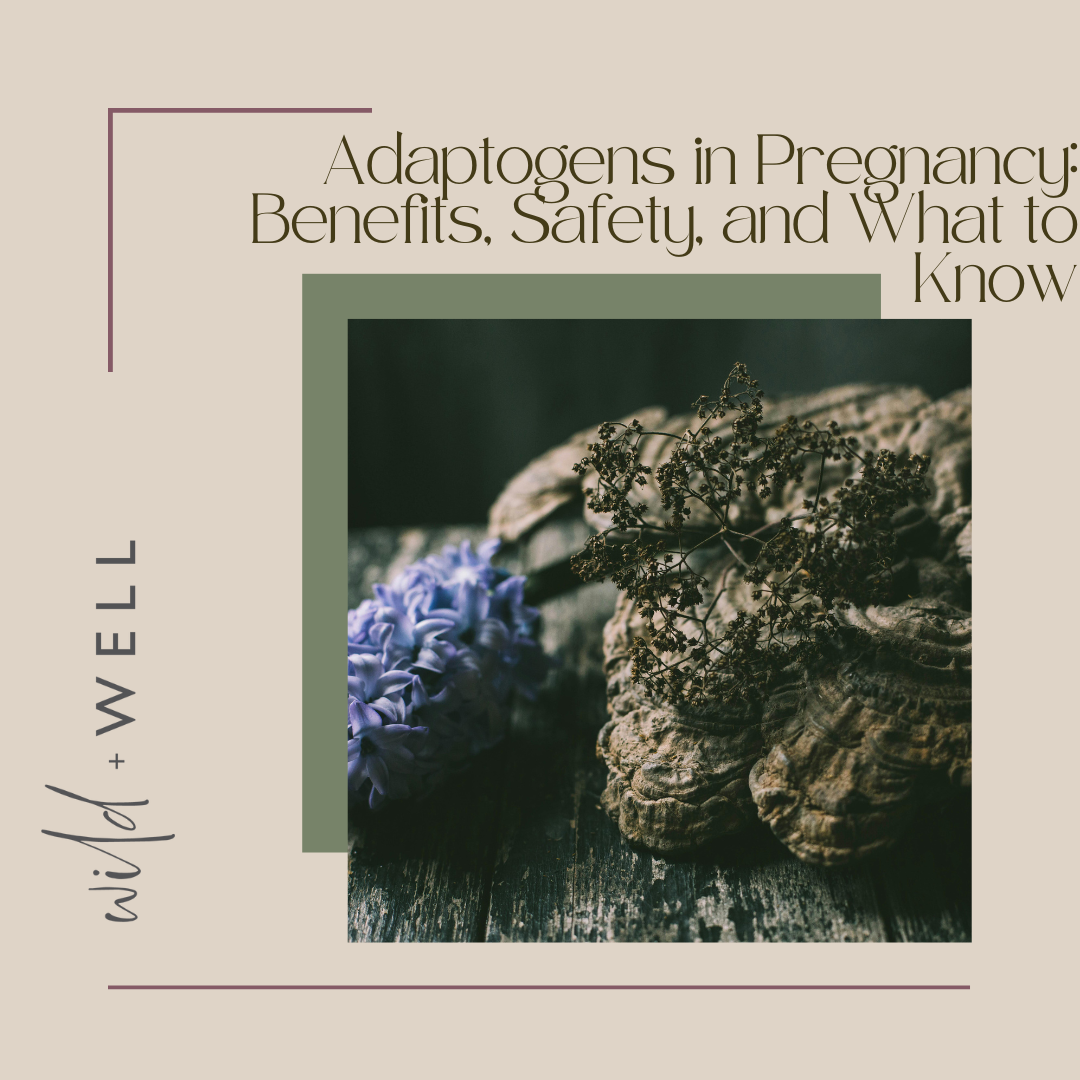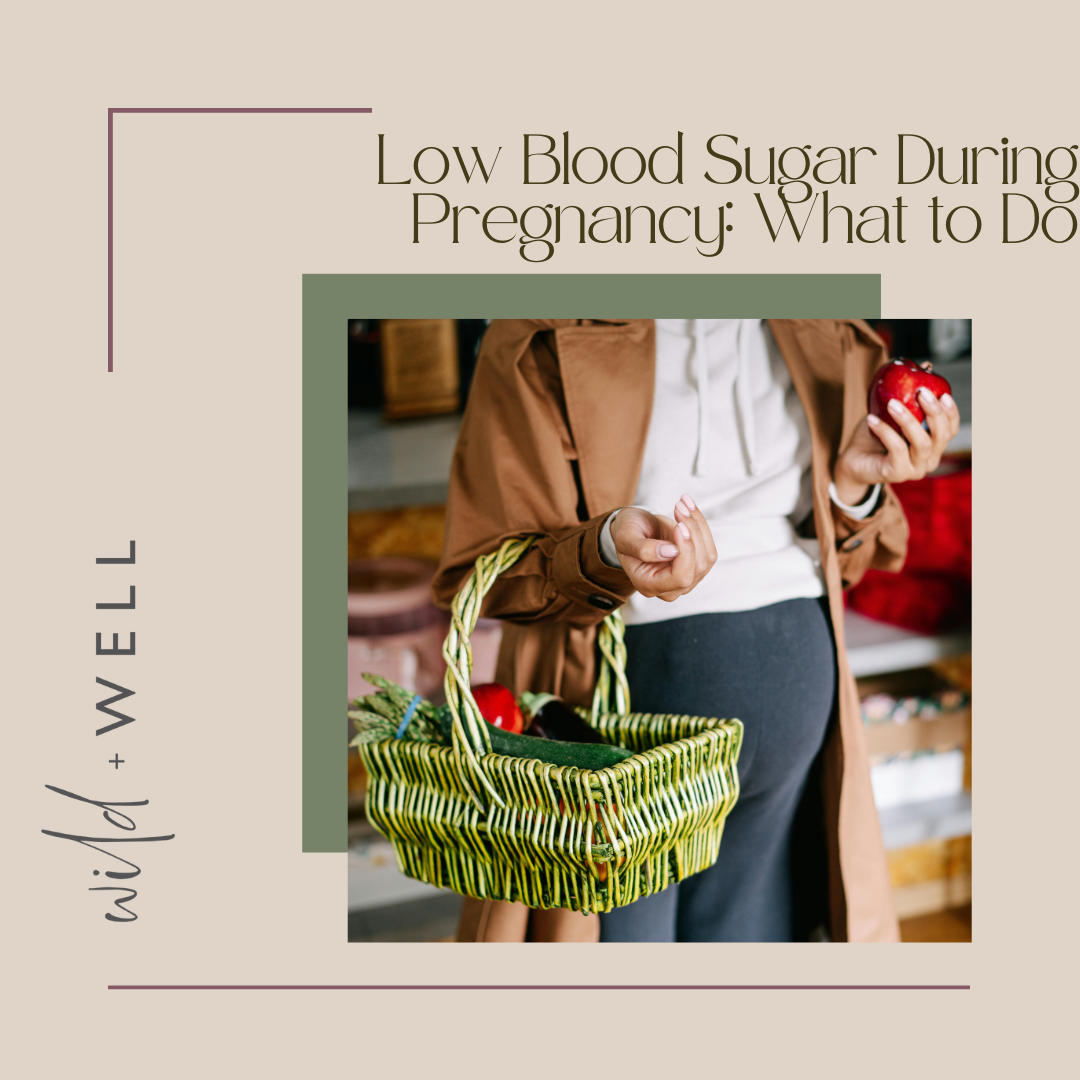Understanding the Root Cause of Postpartum Fatigue + How to Address It with Nutrition
No, it isn’t all in your head.
It’s not a lack of self-discipline or motivation.
Postpartum fatigue is a common experience.
Think about everything you’ve accomplished in the last ten months. You’ve grown a baby, experienced childbirth, and now you’re feeding that baby with nutrient-dense milk made by your own body. Not to mention, you’re living in a constant sleep deficit.
Of course you’re fatigued.
You should feel proud of all your body has accomplished while intentionally making space for much-needed rest. (I know, easier said than done.)
I know postpartum fatigue is debilitating and isolating. There are so many changes that come with childbirth—and dealing with apathy, depression, brain fog, and endless dirty dishes on top of it all can feel crushing.
There are tangible ways to resolve postpartum fatigue, though. And no, they aren’t the kind that add even more to your to-do list.
Here are some tools I use with my nutrition clients to help them regain energy (physically, mentally, and emotionally) and their sense of self:
Table of Contents
Common Symptoms of Nutrient Depletion in Postpartum Moms
Nutrient depletion and postpartum fatigue usually coexist—which is why it’s so important to talk about them at the same time. I’ve compiled a few symptoms of nutrient depletion that may coincide with postpartum fatigue. This list can help you uncover if nutrient depletion is at the center of your fatigue, too.
Postpartum Depression
Believe it or not, postpartum depression is often connected to nutrient depletion. Nutrients like vitamin D, magnesium, and choline can all play a role in your overall happiness and brain chemistry.
If you’re suffering from postpartum depression, please remember it isn’t your fault—and make sure to get the help you need. This is a sign that you’ve given the most of yourself to your newborn (in the form of nutrients, love, and attention). Now you need to replenish and restore.
Brain Fog or “Pregnancy Brain”
There are many hormonal changes going on in your body during pregnancy and postpartum. If you’re constantly forgetting words and feeling foggy, it could be a sign that your brain isn’t getting the optimal amount of nutrients. If brain fog is persistent, it’s time to check in with your diet.
Postpartum Fatigue
Magnesium, B vitamins, and zinc are just a few of the nutrients needed for energy regulation. If you always feel tired, it may be time to test your nutrient levels with the Hair Tissue Mineral Analysis (HTMA).
If you’re not ready to take that leap, you can start with something easier—like my Micronutrient Self Assessment Guide. Since it includes food recommendations and a meal plan, it’s a great first step toward filling your nutritional gaps.
Postpartum Hair Loss
It’s true that a small amount of hair loss is normal during postpartum. But if your hair is falling out in clumps, it’s time to look at the bigger picture. Postpartum hair loss can be a huge red flag for potential nutrient deficiencies.
Remember, our bodies are intuitive. If we don’t have enough available nutrients to handle all our needs, the body will prioritize the important things, like organ function. Hair loss could be a sign that you aren’t getting enough vitamins and minerals to go around.
Birthing Multiple Babies
I work with a lot of women who feel frustrated after birthing their second or third baby. Their last pregnancy felt easier—and they had fewer postpartum symptoms.
It’s important to remember that birthing multiple babies at a fast pace can rapidly deplete your nutrient stores. Just because this pregnancy was different from your last one doesn’t mean you’ve failed. It might just be a sign that it’s time to restore those vitamin and mineral stores.
5 Postpartum Nutrition Ideas to Reverse Postpartum Fatigue
The problem isn’t your inability to keep up with a fast-paced world.
The problem is a fast-paced society that refuses to slow down.
We didn’t always treat postpartum like “just another work day.”
In primal societies, fertility-aged women were prepared for pregnancy with nutrient-dense foods and slow living practices. After a baby was born, postpartum care became essential to survival (for both mom and baby).
This is the first time in history that women and their babies have been so dramatically neglected during postpartum.
We can change this by going back to our roots and learning from primal societies that did postpartum work well. Here are five practices I recommend to relieve postpartum fatigue:
1) Increase Your Protein Intake, Especially at Breakfast
According to one study, breastfeeding mothers had an increased risk of postpartum fatigue. This should be expected, considering the rapid transfer of nutrients from mom to baby. Breast milk is one of the most nutrient-dense foods in the world—and all those nutrients come from you.
If you feel guilty about eating more food due to subliminal messaging about restoring your pre-pregnancy body, I’m giving you permission to reevaluate that messaging. Consider all the amazing things your body has accomplished over the last months—and provide it with the nutrients it needs to keep you and your baby healthy.
One macronutrient that’s especially important is protein. Increasing your protein intake to around 30-40 grams per meal should help stabilize energy levels.
Another small change you can make is ensuring you eat a protein-rich breakfast within a few hours of waking. I know this feels difficult when you have a newborn, but it’s so essential to your self-care—and it helps you jumpstart your brain and energy levels first thing in the morning. Remember, you can’t pour from an empty cup.
2) Pay Attention to Mineral Consumption
Minerals are tricky because they’re essential to every function of the human body, yet most of us take them for granted. If you go to a pregnancy follow-up exam and complain about postpartum exhaustion, you’re unlikely to be given mineral testing. But this may be exactly what you need.
Currently, we’re facing somewhat of a mineral deficiency crisis. Foods are so heavily processed that they no longer contain natural vitamins and minerals. Industrial farming practices are depleting minerals from our soil, and the minerals we do get may be fortified synthetically into foods.
It’s easy to adjust your mineral intake with just a few changes—like a targeted mineral supplement, adding quality salt to your water, and consumption of organ meats, to name a few. Maybe mineral consumption is the “easy fix” we’re all searching for.
3) Balance Your Nervous System
Whether this was your first or fourth pregnancy, it’s important to remember just how many difficult changes your body is going through. Hormone fluctuations, childbirth pain, and anxiety about your baby’s health can all take a toll on your nervous system.
The nervous system can actually change pathways in the brain—making you more susceptible to exhaustion, brain fog, and anxiety. In order to rewire those neurological pathways, we need to give the brain a safe environment. Try adding box breathing, somatic exercises (approved by your doctor), or Emotional Freedom Technique (EFT) tapping to your lifestyle.
4) Take Care of Your Circadian Rhythm
The circadian rhythm helps to regulate sleep cycles, hunger cues, and even hormones. With a newborn, it can be difficult to stay on track with natural rhythms—but these really help keep us in balance.
Even if you can’t sleep for the same amount of time every night, there are still things you can do to support your circadian rhythm. Make sure to eat a meal and get some sun within an hour of waking. Try to eat three main meals at the same time each day (it’s okay to be flexible). It’s also helpful to watch the sun go down—and easy to bring baby along for the adventure.
5) Nutrient Targeting with Supplements
I like to take a foods first approach to wellness—helping women create nutrient-dense meals that support them in every stage of pregnancy and postpartum. However, I also understand how difficult it can be to eat all the right foods. Especially if you’re new to ancestral eating, there’s a bit of a learning curve and likely some nutritional gaps.
In this case, supplements can help. I recommend getting some nutrient testing done to see where you need additional support. That way, you can take a gentle (and less expensive) approach to supplementation.
Postpartum Fatigue Is a Symptom of a Greater Problem
You may have heard that postpartum fatigue is a symptom of, well, pregnancy.
But I don’t necessarily agree with this.
Yes, pregnancy and postpartum can majorly deplete your nutrient stores and leave you feeling exhausted.
But all of this is a symptom of deeper issues, like:
Women’s health recommendations are dramatically behind the times.
Most of us are living in a chronic state of nutrient depletion, which becomes more obvious after pregnancy.
Many women are expected to continue life as normal, even a few weeks after giving birth.
The primary nutrition advice given to postpartum women has more to do with body image than actual nourishment.
These are difficult problems to overcome, but my community is on a mission to help women embrace real nourishment and holistic health for themselves and their babies.
I’d love for you to join us.
YOU MIGHT ALSO LIKE...









